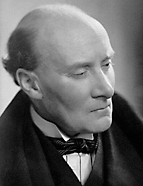

Such a perspective on the Portuguese historical experience and on Prince Henry was not new in Raymond Beazley’s historiographical panorama. In an article published in 1894, under the title “The Colonial Empire of the Portuguese to the Death of Albuquerque”, the historian had already given a glimpse of his interpretation of the role of the Portuguese in the early modern era, pointing out the beginning of the maritime expansion as the turning point from the medieval to the modern world. In this article, which will have been the first one being published by Beazley on the history of Portugal, he also addressed the subject of the building of the Portuguese Empire in India. He considered, on the one hand, that the Portuguese domain in the Indian Ocean regions has, in certain aspects – and much due to its pioneering –, superior value than the presence of other European nations in that region. On the other hand, he stated that the Portuguese presence in India only acquired a truly imperial shape with the action of Afonso de Albuquerque as governor of the Portuguese State of India. Francisco de Almeida, Albuquerque’s predecessor and first Viceroy, had already taken “a more political view of things than the discoverers and traders who had preceded him”. But it was, in Beazley’s view, the first Duke of Goa who was mainly responsible for the expansion of the Portuguese domain in the region, not only commercially but also, and above all, politically and territorially. With his death in 1515, the Portuguese empire, considered the first colonial empire of modern Europe by the historian, would see itself reverted “to the simpler, safer, smaller ambitions of a commercial empire” (“The Colonial…”, 1894, p. 125). Although he has acknowledged that great achievements always require several heroes, Beazley has reserved to Afonso de Albuquerque a prominent position in those he has claimed to be the times of glory of the Portuguese.
As far as the history of Portugal is concerned, topics related to the maritime expansion and the Portuguese presence in the Far East were frequent subjects of analysis among British historians and geographers of the second half of the nineteenth century and beginning of the following one. Richard H. Major brought out, in 1868, a biography of Prince Henry. Frederick C. Danvers studied the rise and decline of the Portuguese empire in India, having even dedicated his work to the memory of Prince Henry. The Rise of Portuguese Power in India 1497-1550 was published by Richard S. Whiteway, who has also translated to English and edited the work of Miguel de Castanhoso under the title The Portuguese Expedition to Abyssinia in 1541-1543. In The Story of Portugal, Henry Morse Stephens distinguished the fifteenth and sixteenth centuries as Portugal’s golden age, having also published a biography of Afonso de Albuquerque. Considering the references to the Portuguese past in The Dawn of Modern Geography and the article published in 1894, it becomes clear that Beazley’s work integrates this tendency of the British historiography. However, his interest in this period of Portuguese history does not end with the two studies mentioned above.
